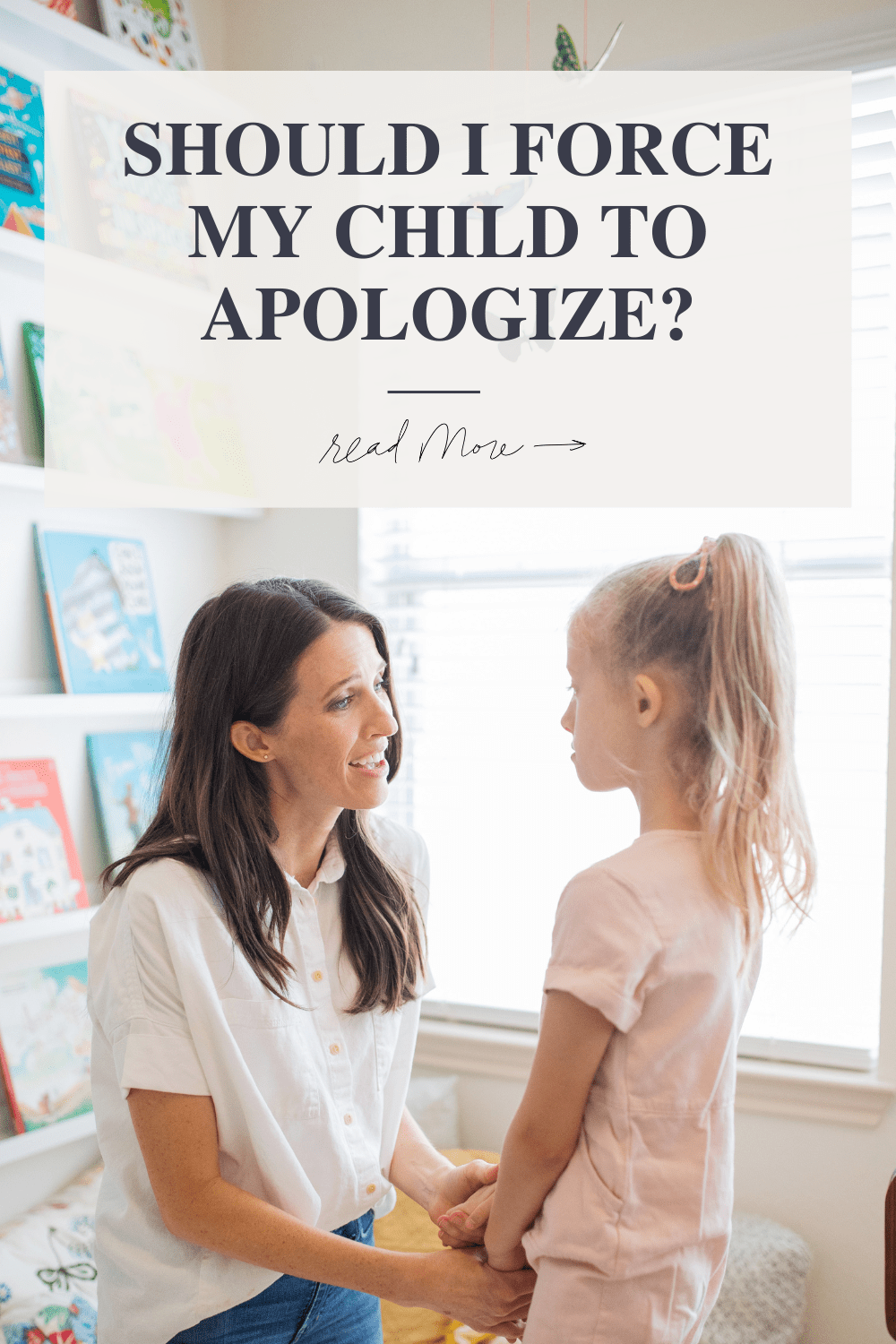I’m sure you’ve seen this scenario play out a hundred times: a child misbehaves or hurts someone, and their parent (or you!) marches over and demands that they apologize to that person. While it may seem like the natural course of action, there are actually reasons why forcing apologies might not be the best approach. Here are four reasons to consider:
1. It Teaches Them That It’s Okay to Give a Non-Authentic Apology
Insisting on an apology when a child isn’t genuinely sorry can backfire. It sends the message that parroting the right words is more important than sincerity. Children may learn to mimic the words “I’m sorry” without understanding the emotions behind them, leading to indifference and a lack of accountability in their interactions.
2. It’s Humiliating
Imagine being forced to apologize for something you didn’t feel genuinely remorseful about. For children, being coerced into saying sorry can feel humiliating and disempowering. Instead of encouraging genuine remorse, your forcefulness may cause them to act out in defiance or resentment, making it even harder to communicate the importance of making amends.

3. It Shows a Lack of Faith in Their Ability to Make Things Better
Requiring a forced apology implies a lack of trust in a child’s capacity to recognize and fix their mistakes independently. It undermines their autonomy and diminishes their sense of responsibility. Children learn best when they can self-instruct–when they are given the opportunity to reflect on their actions and take meaningful steps towards resolution without being forced to do so.
4. It Denies You the Opportunity to Teach Empathy Instead
Apologies should stem from your child’s genuine understanding of how their actions have affected others. By skipping this crucial step and focusing solely on the act of apologizing, we miss a valuable opportunity to nurture empathy in our children. Instead, we can guide them through understanding the impact of their actions on others’ feelings.
A more effective approach is to model genuine apologies ourselves. Try to engage your children in meaningful discussions about empathy and accountability. When a conflict arises, ask questions like, “How do you think your actions made your friend feel?” or “What can you do to make things right?” This encourages your child to think about their actions and to take ownership of their behavior.
By prioritizing empathy over forced apologies, we teach our children essential life skills that extend far beyond saying “sorry.” We teach them to consider the feelings of others, take responsibility for their actions, and actively work towards making amends.
Print Shop Resource: How to Teach Your Child Empathy
If you’re looking for tools to support your journey in fostering empathy and emotional intelligence in your children, I’ve created a resource called “Teach Your Child Empathy.” This resource includes:
- Kid-friendly definitions
- Phrases to use/avoid to encourage Empathy
- Prompts for conversations to start with your child
- Role play ideas for children and teens
- Affirmation cards to help create a culture of Empathy in your home
- Book, movie, and video resources that teach about Empathy
- A recognition award
- …and more!
Creating Positive Interactions in the Future
As parents, we want to teach our children how to create meaningful relationships. This can only be done when we truly care about the people we’re interacting with, showing both empathy and concern. Let’s embrace opportunities to teach empathy authentically, laying the foundation for meaningful connections and positive interactions in the future.
If you’d like more resources on cultivating empathy in your child, you might like these resources:
- Teach Your Child Empathy – Print Shop Resource
- 3 Reasons You Should Never Force and Apology (and Teach Empathy Instead)
- The Learning Project: A Year of Parenting Resources – Print Shop Resource

Hello,
I am 6 months pregnant.. and its going to be my first baby. I am really nervous about raising a child. If you have any documents on first time parenting, please share it to me.
Congratulations! Ralphie has several favorite books about parenting, but most of her content applies to children age 3 and older. If that’s what you’re interested in, check out “The Self-Driven Child” by William Stixrud and Ned Johnson.